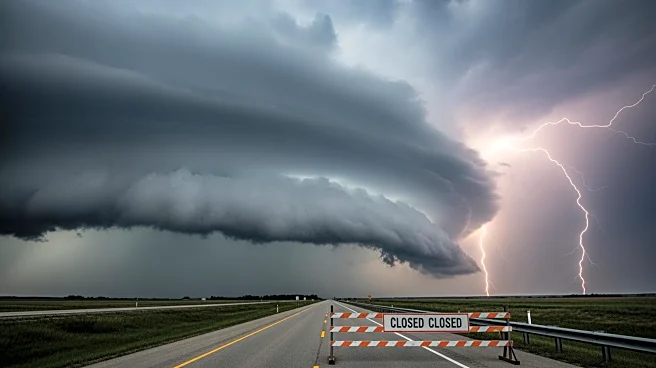The Detroit Lions lost their fourth game of the season on Sunday night in a hard-to-watch primetime game against the Philadelphia Eagles. On one hand, it wasn’t an entire team collapse, and Detroit hung with one of the best NFC teams in football. On the other hand, some disturbing trends are developing with a short-circuited offense.
Let’s break it all down in our Lions Week 11 report card.
Quarterback: D
Jared Goff was rattled and inaccurate all night long. At his best, Goff can navigate pressure, calmly find his open
read, and deliver an accurate ball. None of that was happening on Sunday night. While most of his reads were fine, his ball delivery was not. He finished the night with just a 37.8 completion percentage—by far the worst in his career. Pressure certainly had something to do with that, but even when Goff was working with a clean pocket, his passes were just… off.
Running backs: B
Jahmyr Gibbs took over in the second half and did everything he possibly could to turn every target into an explosive play. His five catches for 107 yards set a career high for the third-year back, and it gave Detroit plenty of opportunities to put points on the board.
But he was also responsible for a failed fourth-down conversion in which he had room to convert, but ran into the back of an offensive lineman. David Montgomery managed just 27 yards on six carries plus another 10 in the receiving game. Pass protection was also a bit of an issue for this duo again, although this wasn’t Vikings-level of a disaster. Of all the offensive players to blame for Sunday’s 9-point output, the backs deserve the least of it.
Tight ends: C
The lack of Sam LaPorta was fairly noticeable, but I can’t point to many specific plays in which Brock Wright or Ross Dwelley were directly to blame. This is an Eagles defense that ranked first against tight ends (in DVOA allowed), so it’s no surprise that this unit was not very productive on Sunday night.
Wide receivers: C
A very mixed bag from the receiving corps. Jameson Williams made it seem like his season revival is actually here, and his ability to punish defenses with crossing routes should give fans some hope for the offense. His penalty was dumb and costly, but I’m not going to ding him too much for it.
Sadly, it was Amon-Ra St. Brown who looked out of sorts against the Eagles. He was targeted a whopping 12 times and turned that into just two catches for 42 yards. There were some borderline drops, there were chemistry issues with Goff (although Goff didn’t agree in his post-game comments), and against a decent Eagles secondary, St. Brown rarely found open space.
On top of that, after getting both Kalif Raymond and Isaac TeSlaa involved last week, the duo combined for zero catches on a single target.
Offensive line: D-
This wasn’t quite as bad as the Vikings’ performance, but in a way, it’s actually more concerning. Minnesota’s pass rushing success seemed more schematic. Against the Eagles, it just looked like the Lions’ offensive line was getting bullied out there. Granted, this is a strong Philly defensive front, particularly at the interior, but it was still disheartening to see the offensive line take a step back after a promising game against Washington last week.
The Lions offense managed just 3.5 yards per carry, gave up a pressure rate of 41.0% (sixth-highest of the week), and it just destroyed any chance at finishing drives. Take the Lions’ failed fourth-down attempt in the red zone:
Kayode Awosika and Penei Sewell both lose their one-on-ones. If Goff has just a little more time, he likely finds a wide-open Brock Wright for an easy score.
Oddly, I think the Lions handled the Eagles’ rare blitzes mostly fine, but not being able to handle Philly’s front four is a big concern.
Defensive line: B
Detroit’s pass rush was mostly MIA for the second week in a row, but that was heavily offset by their ability to stymie the Eagles’ run game, particularly in short-yardage situations. A big reason the Lions were able to keep this game close was that Detroit stopped four third-and-1 situations and got a fourth-and-1 stop, as well. Saquon Barkley was mostly held in check, earning just 83 yards on 26 carries (3.2 YPC).
Still, I’m left wanting more from this group, particularly when it comes to pass rush. Alim McNeill’s return has not made the difference we were hoping for, and while I get the strategy of getting three defensive tackles on the field against this Eagles offense, McNeill wasn’t very effective working from the edge.
Also, I think it’s fair to be a little critical of Aidan Hutchinson’s play as of late. His pressures have been way down in recent weeks, and he also has a bad tendency to lose contain on outside rushes. The Eagles exploited that a couple times on Sunday night, and it’s becoming a recurring issue for the star defensive end.
Linebackers: A
Jack Campbell led the team with a season-high 15 tackles against the Eagles, including a huge tackle for loss that turned a second-and-5 into a third-and-8. Alex Anzalone was fantastic in coverage yet again, and he also added a massive 8-yard tackle for loss to help hold the Eagles to a field goal in their first red zone trip. Derrick Barnes was the quietest of the three on the night, and I’d still like to see more pass rush from him.
Secondary: A+
The Lions secondary, with little help from a pass rush, managed to hold Jalen Hurts to a season low in passer rating (63.8), completion percentage (50%), EPA/dropback (-0.34), and his second-lowest yards per attempt (4.8). Detroit also managed the lowest yards of separation per target of any other team in Week 11 (2.3).
While the Lions could have really used a turnover, this unit performed as well as anyone could realistically hope, especially given that they were down three starters.
Special teams: D
Let’s run down another list of failed special teams moments:
- Fake punt that didn’t come close to converting
- Missed (long distance) extra point
- All three kick returns were stopped before the 30-yard line
- Three punt returns for 3 yards
Kalif Raymond seems to have run out of juice as a returner in both punts and kicks. Jake Bates missed another kick—and while the windy conditions and 15-yard penalty didn’t help—he later made a longer 53-yard field goal with little issue.
The team’s punting game remains pretty good, so it saves them from an F this week, but they’ve got to be better moving forward.
Coaching: D-
I had a lot of problems with the way Dan Campbell managed the game. The Lions say they got the right look on the fake punt, but a run up the middle against Philly’s strong defensive interior seems like a very poor choice. That was actually the only fourth-down attempt I didn’t agree with in terms of going for it, but I was extremely underwhelmed by the actual play calls on fourth down. In fact, let’s take a step back and talk about third downs.
On two different occasions, the Lions tried to run on third-and-medium or long to get themselves into a manageable fourth down. Here’s how those worked out:
- Third-and-8 — 2-yard run, delay of game on fourth down attempt
- Third-and-4 — 1-yard run, failed fourth down attempt
Don’t love that.
But perhaps the worst decision of the night was Campbell not using his timeouts on defense at the end of the first half. Had he used them once the Eagles got into the red zone, Detroit could have had over a minute to try and double up with possessions to end the first half and start the second.
Instead, Campbell passed on the extra possession, and his reasoning makes zero sense.
“I knew we were getting it after halftime and really what I did, I just kind of waited. I was going to wait until we hit about under a minute and then at that point I just kind of let it go like, ‘Alright, we’ll get it back.’ So absolutely, I talked about it, thought about it, and I just chose not to there. I said, ‘We will take it in the third quarter when we come out at halftime.’ So yeah, I did think about it.”
I don’t understand how getting the ball to start the second half has anything to do with burning an extra possession.
As for the game plans, I actually thought there were some things to like offensively. Using the pass and screen game to open up the run game would have worked had the execution been a little better on critical downs. And, defensively, Kelvin Sheppard deserves a ton of credit for continuing to get great performances despite a banged-up group.
















